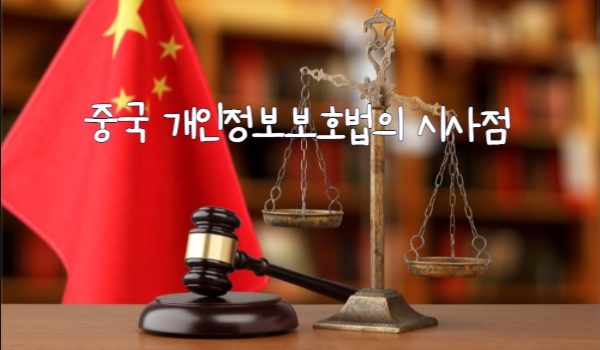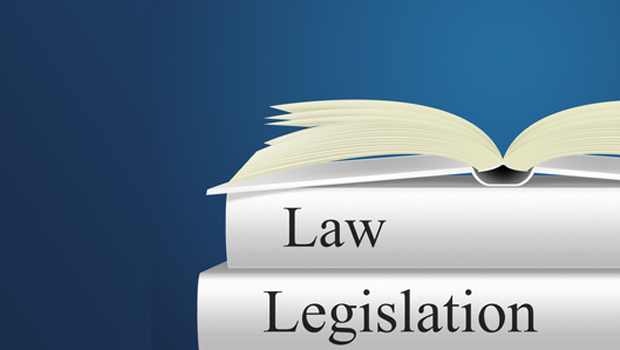Bill for a Digital Republic: a surprising name for an ambitious law
※ 본 원고의 번역문은 제26호 <법제동향>에 수록된 ‘「디지털 공화국을 위한 법률」: 야심만만한 법률을 위한 놀라운 이름’으로, http://journal.kiso.or.kr/?p=8110에서 확인할 수 있다.

The French National Assembly has just passed the Bill for a Digital Republic1. In addressing protection of persons on the Internet, enhanced accessibility to public transparency, opening up of public data, publication of judicial decisions after anonymization, improvement of the circulation of knowledge on the Internet, encouragement of research and innovation-related professions, the Digital Republic Bill seeks both to promote the use and dissemination of information and communication technologies, but also to define certain limits in the name of the protection of rights and freedoms.
The law in France has sought to anticipate the law in Europe with two main objectives: to embrace the development of digital technology and to embody the protection of consumer rights. This choice has, likewise, raised objections. As a matter of fact, why legislate on these subjects at the very moment when Europe tackled them?
■ The European background
The European Commission has made the digital one of its priorities and has presented, since 2015, a new digital strategy. This Digital Single Market2 strategy is organized around three main pillars. The first targets at individuals aims to ensure better access for consumers and businesses to online goods and services. The second addresses regulation and public action because it aims to create favorable conditions and a level playing field for advanced digital networks and innovative services. Finally, the third focuses on industry and the economy, seeking to maximize the growth potential of the digital economy.
The future European regulation is thus very ambitious. It aims to develop the connectivity and competitiveness of the digital economy while strengthening the rights of individuals (especially on the protection of personal data) by reducing the burden on companies and harmonizing the rules of the game. The French bill contributes to reinforce this European impulse, by stimulating public debate on these subjects but also by playing a pioneering role, by anticipating – and trying to inspire – the main lines of the future European regulation. This is particularly the case for net neutrality or the protection of personal data.
■ The challenge of the French plan
Several provisions of the draft law are directly concerned by European law. It includes many important and symbolic measures, but the wording does not always provide additional measures for the European regulation. In some cases, they paraphrase it, without necessarily using exactly the same expressions. In other cases, they fine-tune existing measures in order to establish and strengthen them legally in the French legal context. This is the case in very different dimensions: roll out, white areas, regulator competences, taxation, maintenance of the telephone copper network, etc.
Thus, the Digital Law serves mainly to introduce various European decisions in French law (net neutrality, for example) and to remove certain gridlocks on the deployment of networks, fixed and mobile. The text introduces major concepts such as the open public data by default, the data of general interest, the right to forget for minors, digital death, upholding online platforms fairness, right to experimentation, academic recognition of online courses … It also gives legal recognition to new uses and services: SMS donations, video game competitions, electronic registered letter or digital safe and access to text and data search (text data Mining) for scientists and researchers.
■ A ground-breaking on line concertation
One of the most remarkable dimensions of the bill has been the unprecedented process of elaboration: wide open public consultation. For many observers, the novelty of the law was as much about its content as about how it was developed.
The law had two main phases of consultation. It was firstly kick-started by a law-making fab lab involving various experts and a governmental think tank. It was then feed by a public open interactive online platform to amend the first version of the text. Internet users were thus able to co-write the law before it was adopted by the Cabinet and validated by the French Administrative Supreme Court, by voting on the proposed articles, commenting on them, proposing changes to the text and voting on changes made by other Internet users.
The process was a real success because the citizens were strongly mobilized. This consultation gathered, in three weeks, 137,000 unique visitors, 21,000 contributors, for 147,000 votes cast. The consultation made it possible to know the oppositions or questions aroused by certain articles, to elicit new proposals and to nourish the parliamentary debate. Almost all of the proposals that came to the forefront of Internet users’ support included, in particular, free software, defense of the public domain, the assertion of the Commons, the neutrality of the Net, the strengthening of protection of personal data, right to encryption of communications or open access.
■ Facilitating fixed and mobile THF deployment
The legislator wanted to facilitate the deployment of very high speed and mobile networks, notably strengthening the powers and competences of the regulator.
The Bill is geared toward integrating the networks into an overall digital development strategy. As such, it includes several provisions to ensure digital inclusion: balanced territorial coverage, right to maintain the internet connection for the most deprived, accessibility for people with visual and hearing disabilities in particular. It also includes measures to stimulate the development of uses and the development of balanced development strategies for digital services on the territory. Finally, it aims to facilitate the development of very high speed broadband networks by removing various practical obstacles to the deployment of fiber (equipment of buildings…) and by accelerating the extinction of the copper networks.
Indeed, since 2013, France has initiated a vast Very High-Speed Broadband Plan (Plan France Très Haut Débit) for covering the entire territory with fiber infrastructures. It results in a massive effort of public and private investment of a total amount of €20bn to make 100% of French territory equipped with fiber optic networks by 2022.
Several measures of the Bill are thus planned in order to accelerate the rolling out just as much as the access to the very high mobile broadband. Without being radically new in nature, they aim at solving the difficulties, obstacles or delays concretely noted by local actors, authorities or operators.
We can cite some of them in very varied strands. The “right to fiber” allows any resident of a building, owner or tenant, to get the connection of its housing to the fiber optic network, without seeking to request the authorization of its condominium (if physical access is available). By the same token, regulatory facilities provide one-time opportunity for financial support to communities for mobile deployment. To help achieve the speeding up of development and quality of digital services, the Bill aims to accelerate the transition to Ipv6 introducing a compatibility obligation with IPv6 on any terminal sold in France from 2018 onwards. Finally, the law is intended to encourage innovation with the basic tenet of the principle of experimentation: it allows the regulators to temporarily alleviate certain regulatory constraints during experimentation on networks.
■ The Net Neutrality
One of the essential contributions of the Digital Law is to forge a resolute framework to cement the neutrality of the Internet in the EU’s harmonized approach. The debates refer to the question of what control the Internet providers might on the content and traffic they conveyed. A neutral Internet assumes that telecommunications operators carry all information flows regardless of their nature, content, sender or recipient. However this principle is threatened by all the practices of blocking the transmission of data, degradation or slowing down of traffic. Actually, various reasons are supporting such stumbling blocks: technical reasons of traffic management, economic reasons to charge the content providers that generate the most traffic in exchange for a certified quality of service, or for legal reasons to hinder illegal content.
The French bill thus transposes the European definition of the net neutrality. It is interesting to note that while the neutrality of the net was initially explicitly enshrined in the first European proposal, it was then replaced by the notion of “guarantee of access to an open Internet”. Unlike the Europeans who preferred to talk about the open Internet, the French law speaks explicitly about neutrality of the Internet. Conversely, it considers the concept to be equivalent to the (European) guarantee of open access to the Internet without, nonetheless, paraphrasing the original EU’s text. The expression adopted in France makes it possible to explicitly reinforce the principle of net neutrality as such, while remaining in line with the choices made at European level.
Beyond the semantic elements, France did not aim to radically strengthen the measures compared to the European version. As EU law currently stands, ascertaining the national regulators of the net neutrality control, the French bill gives the French telecommunication watchdog(ARCEP3) the duty for ensuring compliance with net neutrality rules and its application in concreto.
■ The Platform fairness
Some platforms, like the web giants such as Google or Facebook, have become essential intermediaries in the digital economy. Indeed, platforms are defined as the activities of classifying or referencing content, goods or services offered or put on-line by third parties, or connecting electronic parts to the sale of a good, the provision of a service, including without remuneration, the exchange or sharing of property or a service. Thus, the platforms can, within the framework of their freedom of contract, exercise a selection of the services offered and a hierarchy of the proposed contents, whether these are part of commercial transactions or come from the collaborative economy, such as Wikipedia, Airbnb or Blablacar.
As a consequence, the emergence of these platforms raises many regulatory issues because they have considerable market power. In this context, an important issue is the transparency of the methods operated by the platforms for the listing, ranking and delisting online offerings. The law thus enshrines a principle of loyalty to these platforms: they must provide the consumer with fair, clear and transparent information on the general terms and conditions of use of their service and on the terms of reference, classification and dereferencing they used. If a contractual relationship, ownership link or compensation exists between the platform and the listed persons, the platform must state this clearly.
A concrete application of this fairness principle encompasses the regulation of online reviews. A provision imposes on websites publishing on-line reviews to state explicitly whether their publication has been the subject of an audit process and the main characteristics of such verification. For example, it will be necessary to ensure that a hotel does not publish a rain of faked favorable opinions on its resort in order to get artificially a higher grade in the tourist sites and to undermine fair competition with other professionals. The objective is to enshrine the consumer to test out the trustworthiness of the opinions available on the internet.
Such a purpose also affects public services. A provision resulting from on-line concertation makes it possible for individuals who have been the subject of an administrative decision based on algorithmic processing to obtain communication of the rules defining that treatment and the main characteristics of its implementation.
■ Personal data
Another important pillar of the bill refers to the protection of personal data. Inspired by the German jurisprudence4,
the latter establishes a new right, the right of individuals to decide how their personal data is communicated and used. In doing so, French law is in line with the spirit of the European regulation, which enshrines the principles of data protection. As far as the protection of online privacy is concerned, everyone has the right to decide and to control the uses that are made of his/her personal data. Several types of data can be designated as “personal”: identification information (name, address, ID or social security number), but also a photo, a video or a CV. The principle of the right to the free disposal of personal data is thus established and admitted from the design stage of the data, stipulating privacy by design, and empowering companies rather than enforcing a posteriori control. Yet, by devoting individuals the right to the self-determination of their information, the bill adopts protection from a perspective that gives them control over their data, but by opposing the view that should recognized to individuals an explicit ownership over the data.
The bill contain several provisions to embody the protection in very concrete situation ranging from the penalization of porn revenge to the confidentiality of electronic correspondence in the same way as postal mail. Additionally, the law also anticipates the provisions of the European regulation which establishes a right to the deletion of personal data relating to minors. The French bill enshrines the privilege – for the benefit of any minor but also those who have become major – of obtaining the deletion of the personal data collected as soon as possible without having to give any particular reason. It thus provides a special guarantee to minors who have posted information that has become harmful to adulthood.
On another subject, the bill also set forth the status of digital death. It address the difficulties of internet service providers to be able to deal satisfactorily with the management of the data and accounts of internet users after their death: information on the death, degree of legitimacy of the beneficiaries, absence of the authentication codes … Entitlements devotes the possibility to share its last wishes with online service providers or trusted third party regarding the future, after one’s death, of personal information published online.
On top, from competition and economic viewpoint, a goal of the law is to encourage the data portability. It aims to empower everyone to freely choose the best online service by making full use of competition between players. Obligations are introduced to compel online services to make it easier the retrieval of its usage data for a user willing to change its provider: it refers to all uploaded files and data resulting from the use of the user account except those having been significantly enhanced. The purpose is to bolster the mobility of users wishing to change service providers and, consequently, to encourage competition between the digital services. In order to support portability from a provider to another one, the data should be retrievable in an open standard, easily reusable and exploitable by an automated processing system. The commitment refers both to online bank account, e-commerce service or preferences and personal playing lists and reviews of online music site.
■ Open access and copyright
Finally, an ultimate important aspect of the French bill is the issue of copyright and the status of public data. In order to develop innovation by circulating information and knowledge, the law begins with establishing the systematic implementation of open data in public administrations. It thus aims to ensure the opening –free of charge – of the largest part of public data, but also extend the scope of open data policy to include data collected by private entities in charge of public service concession (energy, waste management for example).
Several targeted measures also relate, in the same spirit, to public research. As far as it is concerned, the bill makes the choice of the “Green Open Access” model in order to consent researchers to archive and publish on line the results of their research. Without really calling into question the current scientific publishing system, the law tries to correct the imbalance existing today between researchers and major publishers. A provision establishes that the results of publicly funded research can be made available on-line by their authors, after an embargo period of 6 to 12 months. This measure is intended to facilitate the free dissemination of research results whose distribution was previously often restricted and controlled by publishers. By the same token, amendments streamline procedures for accessing public databases and statistics for research purposes.
It should be emphasized that in this area the law has not been able to go as far as some actors wished. Thus, in the public consultation and the draft version of the Bill, some provisions were made to introduce and positively acknowledge the concept of Commons. This concept was considered by many stakeholders as essential for creation. Nonetheless, under the pressure of the rights holders, it has been finally removed from the latest version of the bill.
■ Various other measures to champion digital culture
Finally, in a series of more specific articles, the Bill seeks to acknowledge, foster and secure new emerging digital practices. One can take two examples. A first one concerns especially the competitions of video games, sometimes called e-sport. These activities are often underestimated or even despised in spite of the number of their practitioners and their economic importance. But then the Bill gives them an official status, which results in the legalization of physical competitions in video games and recognition of a real social condition for players. Another example is crowdfunding. By implementing a European directive in advance, the bill also seeks, in the same spirit, to facilitate SMS campaigns for associations involving public saving.
■ Conclusion
The Bill for a Digital Republic deals with a diversity of subjects with resulted in a fragmentation of the provisions of the law in the course of the debates. As such, the bill is a long and complete text5,
modifying and supplementing dozens of pre-existing French Codes (Consumer, Territorial collectivity, Public administration, Electronic communications, Monetary and Financial …). This made it difficult the elaboration process and the coherence of the whole text. Moreover, beyond the adoption of the bill, the breadth of the scope and its strong overlap with European projects made that implementing decrees very long in drafting. As a matter of fact, not all of them have yet been drafted at the time this article is published. Some provisions of the bill can be applied immediately when others will not be in force immediately because they call for legal translations and the implementation of technical devices not yet in place.
Another important issue is the territorial application of the bill. Adopting national measures only partially addresses the problems addressed by the law (platform fairness e.g.). There is a risk that provisions can only apply to firms located in the national territory, and therefore do not affect the international web giants. As shown by recent prosecutions of personal data, antitrust or taxation, only the European level seems to have the critical size to oppose these players.
Besides, the very wide spectrum of these measures and their underlying issues naturally led the legislator to significantly increase the powers of the National Regulatory Agencies. This is the case for the power of the regulator in charge of personal data – the CNIL – to impose penalties. This is also the case for the regulator in charge of electronic communications and postal services- the ARCEP – by extending its scope (it is now warrant for the neutrality of the internet and the fairness of platforms), as well as strengthening its power of action and its sanctioning capacity.
——————————————————————————————————
- http://www.republique-numerique.fr/pages/in-english [본문으로]
- https://ec.europa.eu/commission/priorities/digital-single-market_en [본문으로]
- http://www.arcep.fr/index.php?id=1&L=1 [본문으로]
- https://fra.europa.eu/sites/default/files/role-data-protection-authorities-2009-de.pdf [본문으로]
- It contains 113 articles which are often very long [본문으로]



 이전 글
이전 글  다음 글
다음 글  지능정보화 기본법 개정 의의와 한계
지능정보화 기본법 개정 의의와 한계  중국 개인정보보호법의 시사점
중국 개인정보보호법의 시사점  인터넷전문은행특례법 통과와 은산분리 시사점
인터넷전문은행특례법 통과와 은산분리 시사점  「디지털 공화국을 위한 법률」: 야심만만한 법률을 위한 놀라운 이름
「디지털 공화국을 위한 법률」: 야심만만한 법률을 위한 놀라운 이름  EU의 일반 개인정보 보호 규정(GDPR): 데이터 주도 혁신에 대한 제한인가?
EU의 일반 개인정보 보호 규정(GDPR): 데이터 주도 혁신에 대한 제한인가?  게임SW산업의 진흥과 자율규제 – 표현의 자유 관점에서의 규제 개선
게임SW산업의 진흥과 자율규제 – 표현의 자유 관점에서의 규제 개선  개정 전기통신사업법의 부가통신사업 실태조사 근거 규정에 대한 검토
개정 전기통신사업법의 부가통신사업 실태조사 근거 규정에 대한 검토  미국 딥페이크 전쟁 개시, ‘TAKE IT DOWN Act’ 시행 과제
미국 딥페이크 전쟁 개시, ‘TAKE IT DOWN Act’ 시행 과제